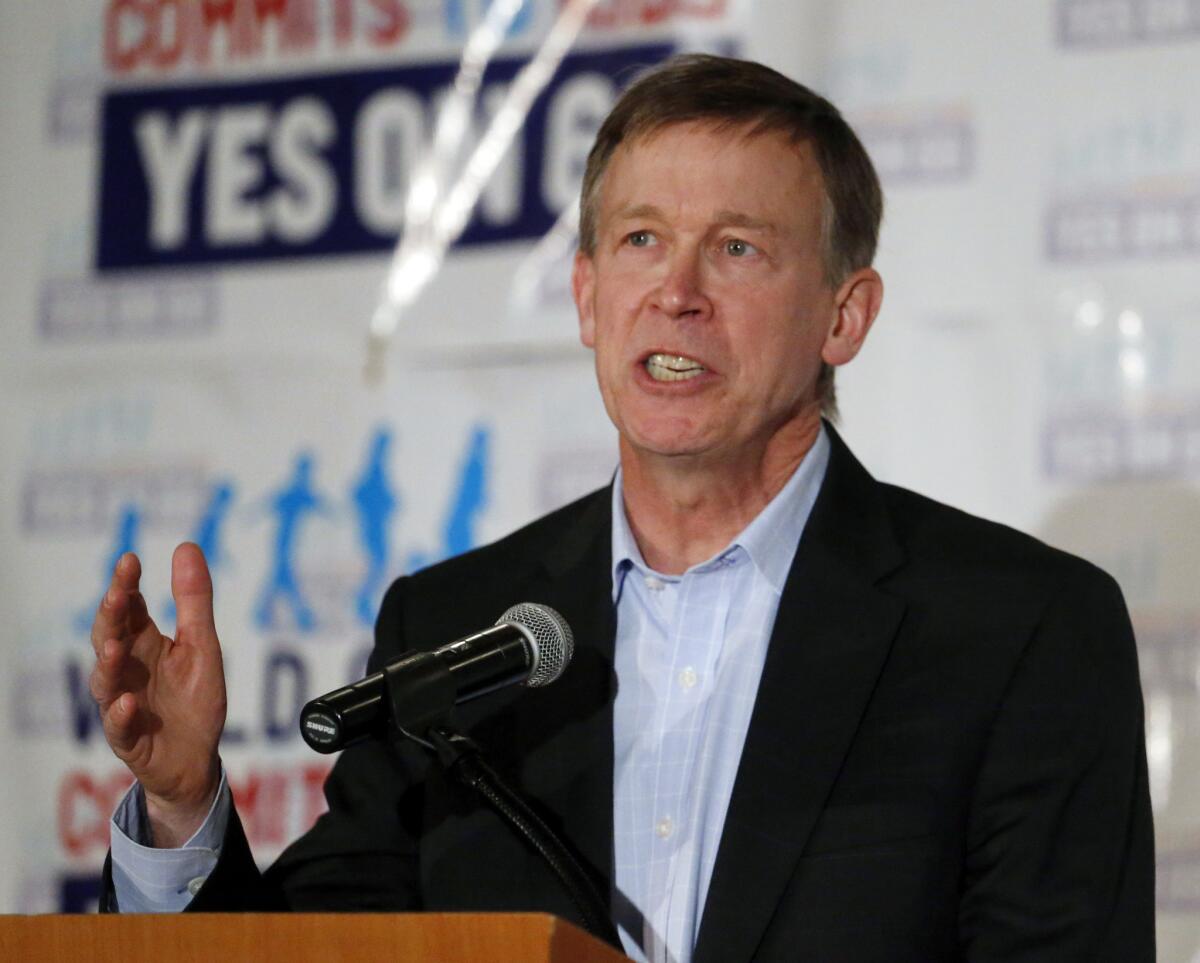Six of 11 counties reject secession in blow to Colorado effort

- Share via
Voters in a half-dozen counties in rural Colorado have rejected a call to break away and create a new state, dealing a serious setback to an effort that always seemed a long shot.
Residents of 11 Republican-leaning counties cast ballots in an advisory vote Tuesday, a backlash arising from unhappiness over legislation passed this year by the Democratic-run Legislature, including gun controls, clean-energy requirements and expanded gay rights.
The vote was the first of several steps it would take to form a new state, something that has not happened through secession in 150 years.
Floyd Ciruli, a Denver pollster and longtime student of Colorado politics, said the measure suffered from its seeming implausibility. “There’s no doubt people are angry and wanted a vehicle to express their anger,” Ciruli said. But once they conveyed their frustrations, he said, actually splitting off from the rest of the state was, for many, a step too far.
Voters in Weld, Logan, Sedgwick, Elbert, Lincoln and Moffat counties opposed the secession initiative, according to unofficial returns. The advisory measure was approved in Cheyenne, Washington, Phillips, Yuma, and Kit Carson counties.
Weld County, where the measure failed 58% to 42%, was the most important test vote. The county was not only home to several leading proponents but was the most populous and economically prosperous of the 11 voting, making it a linchpin of the breakaway attempt.
One major supporter, County Commissioner Sean Conway, suggested it was time to refocus efforts. “The voters of Weld County have spoken. They said this was something the county commission should not pursue, and we will not pursue it,” Conway said. “But the problem still exists. We’re going to put our resources into other options.”
Among them is a proposal that would modify the way state lawmakers are chosen, giving greater clout to rural areas.
For their part, secession advocates vowed to press on, citing the support of the five sparsely populated counties. “As the governor would say, we need to lean in a little harder,” said proponent Jeffrey Hare, quoting Democrat John Hickenlooper, who opposed the breakaway effort but expressed sympathy for the frustration of rural residents. “We’re in for the long haul,” Hare added.
Hare said secession proponents would consult with elected leaders of the five counties to see how they wished to proceed. Activists could take their effort to the state Legislature, or seek another advisory vote in 2014, hoping to expand support. “We have to do a better job of educating people,” Hare said.
In Denver, Hickenlooper issued a conciliatory statement. “As we were reminded during the flood, we are at our best when we are Colorado united,” he said. “While voters in six counties rejected the secession plan .… we understand that some rural areas still feel underrepresented and are not being heard. We remain committed to listening more and working with local communities all across Colorado.”
Twitter: @markzbarabak
More to Read
Sign up for Essential California
The most important California stories and recommendations in your inbox every morning.
You may occasionally receive promotional content from the Los Angeles Times.











